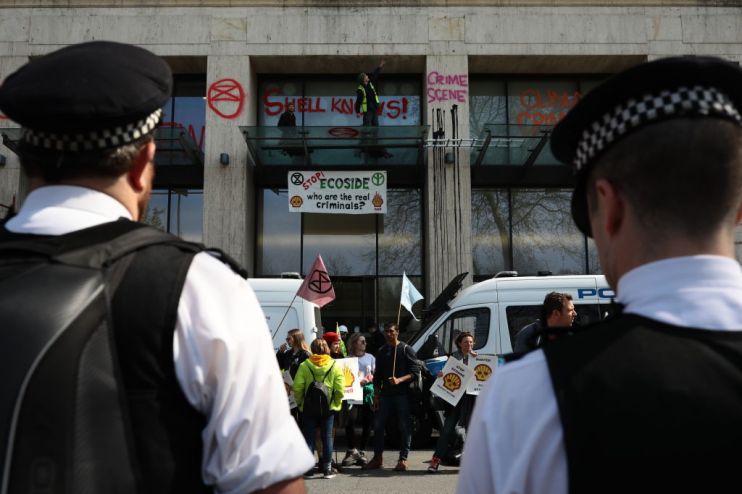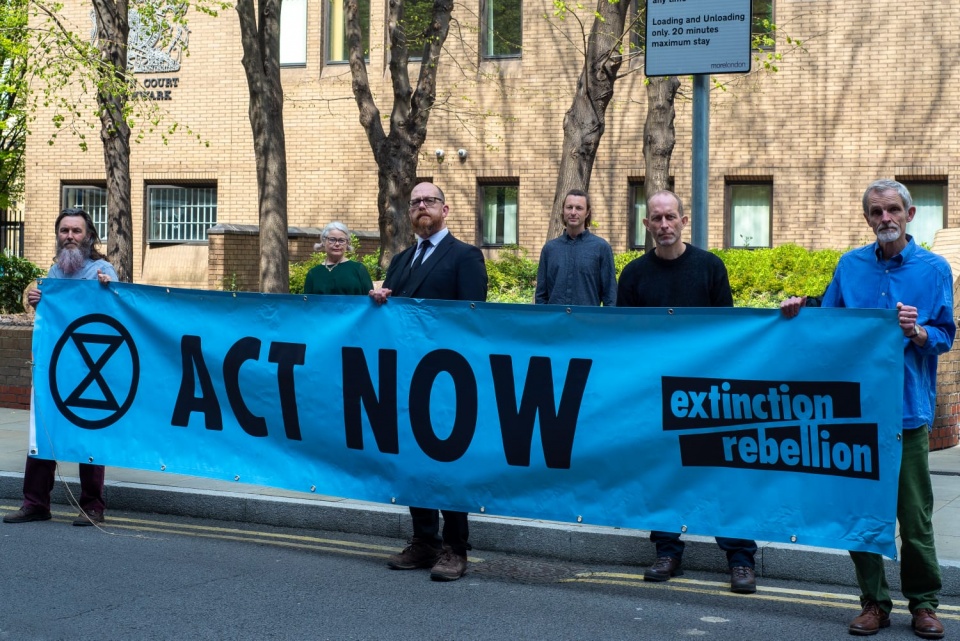Extinction Rebellion cleared of criminal damage to Shell building

Six members of Extinction Rebellion have been found not guilty of criminal damage, after the protest group spray painted the Shell building at Waterloo in April 2019.
The six activists were acquitted today at Southwark Crown Court, with the jury delivering a ‘not guilty’ verdict for each of the defendants, despite the court’s judge ruling that five of the six had no defence under the law.
Defendant Simon Bramwell, co-founder of Extinction Rebellion, said: “It is a significant victory for the truth of these times, when despite the letter of the law, jurors can clearly see that a broken window is a just response to a breaking world.
“With today’s verdict, it is clear who the real climate criminals are in the climate and ecological emergency. ‘Shell knew’ as we wrote.”
The six Extinction Rebellion activists had been charged with more than £25,000 worth of criminal damage after a protest at Shell that lasted for more than 24 hours.
Activists poured fake oil, glued themselves to the windows and blocked doors. They cracked several windows, climbed onto the entrance canopy, dropped banners and painted the exterior with ‘Shell Knew’, ‘Climate Criminals’ and ‘Lies’.

Ian Bray, David Lambert. Credit: Extinction Rebellion.
Judge Perrins told to jury it was a “highly unusual case”, and rare for defendants to accept what they did, but still plead ‘not guilty’. He then told the jury five of the six activists had no defence under the law.
“As I have said already, this is a court of law, it is not a court of morals,” judge Perrins said. “I have given you clear direction on what the law is and your duty to apply that law to the facts as you find them to be.”
He went on to remind them of the oath they had taken to “reach true verdicts according to the evidence,” adding: “Those are not mere empty words. A true verdict is one that is reached having all due regard to the law. That is how our jury system works and that is what you all pledged to do.”
The six activists defended themselves, and had hoped to rely on the necessity defence, which provides a lawful excuse for a criminal act if intended to prevent a greater harm.
Judge Perrins allowed the defendants to explain their beliefs to the jury but had ruled the necessity defence inadmissible.
The environmental group said the Shell protest was “designed to increase public knowledge of Shell’s complicity in the climate and ecological emergency.”
At the time of the incident Shell said: “We respect the right of everyone to express their point of view, we only ask that they do so with their safety and the safety of others in mind.”
Extinction Rebellion will be back at Southwark Crown Court on 30 June for a second jury trial for criminal damage at the Shell HQ building during a protest that took place in September 2020.